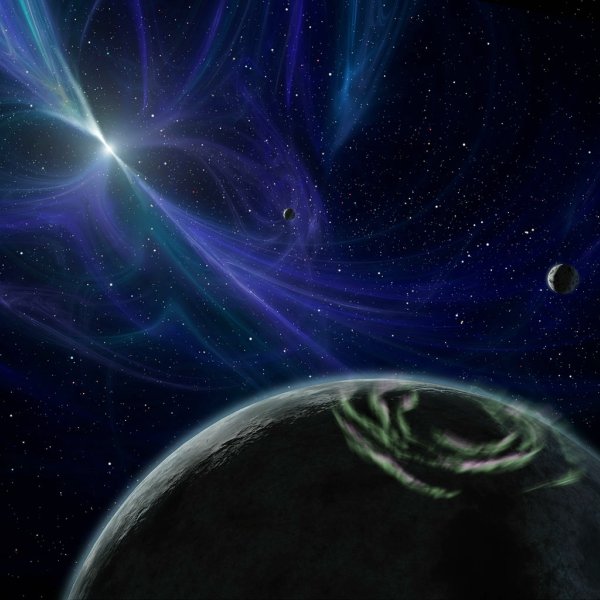A pulsar is not something you would like to have at home. It rotating neutron star, the collapsed remains of a massive star that ended its life with a supernova explosion. But in terms of size, it's not the biggest. They could easily fit into a larger city. But they are made from degenerate matter so they are insanely heavy. They are also surrounded by extreme gravitational and magnetic fields that make the pulsars rotate violently.
To say that the surroundings of a pulsar are inhospitable would be an understatement. But even these crazy objects have planets. Even the first exo-planets was discovered by the PSR B1257+12 pulsar. We may not yet know whether they are the original planets, survivors of the supernova blast, or new planets from the space rubble from the supernova.

A planet near a pulsar - artists rendition - Source: NASA/JPL-Caltech/R. Hurt (SSC).
Now the astronomers from the University of Cambridge and the University of Leiden tried to calculate the size of the habitable zone for a pulsar. Or if such a zone even exists. Their results published by the Astronomy & Astrophysics magazine are a surprise for many.
It seems that the habitable zone around a pulsar may be as big as the distance from Earth to the Sun. But it is important that the planet is a super-earth, a planet with a mass of 1 – 10 Earths. The pulsar would evaporate the atmosphere of the planet very soon if the planet was smaller.

Mihkel Kama - Source: Leiden Observatory
And does it look in the PSR B1257+12 star system? Alessandro Patruno from the University of Leiden and Mihkel Kama from the University of Cambridge discovered that two of the three exo-planets around this pulsar are super-earths and on top of that in the habitable zone. So, maybe there is some liquid water on them.
Go on bro !
Nice post keep posting
Please upvote and share love
Hi, I found some acronyms/abbreviations in this post. This is how they expand: